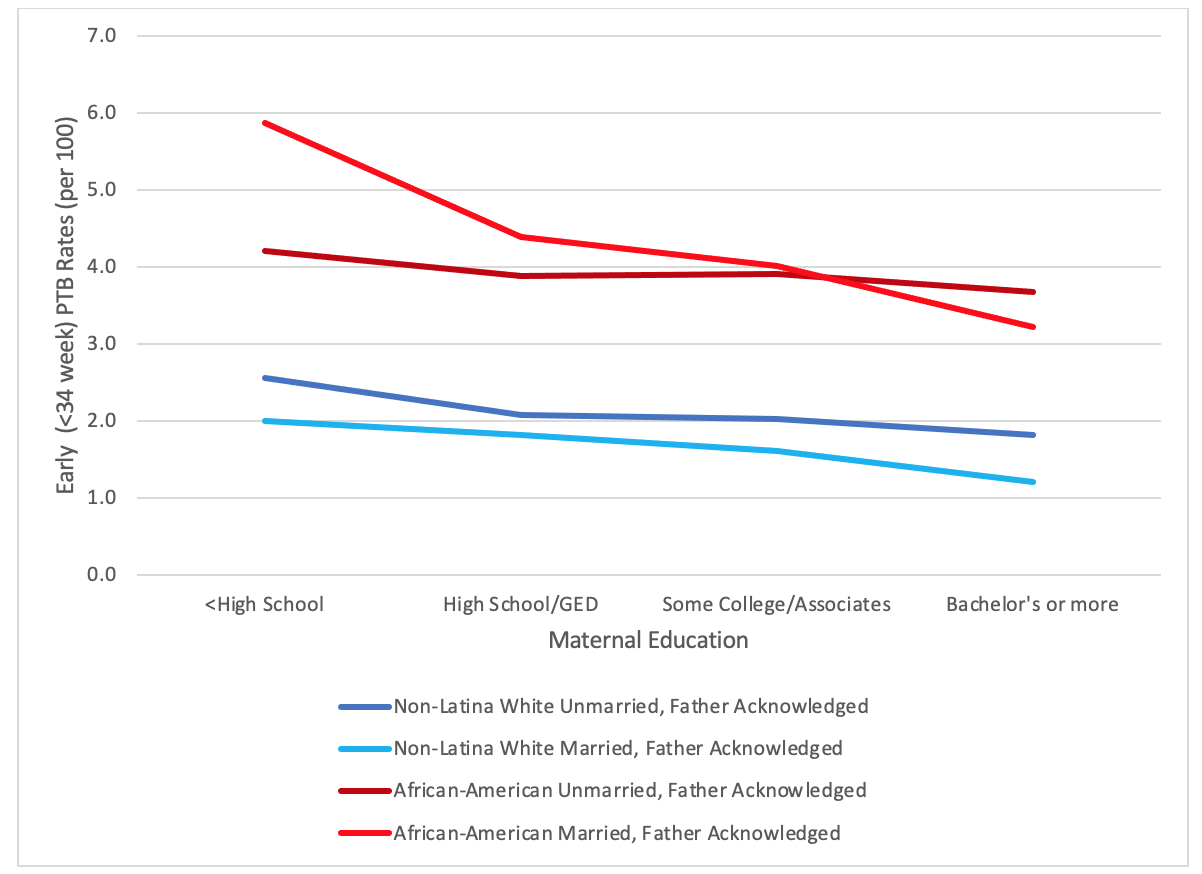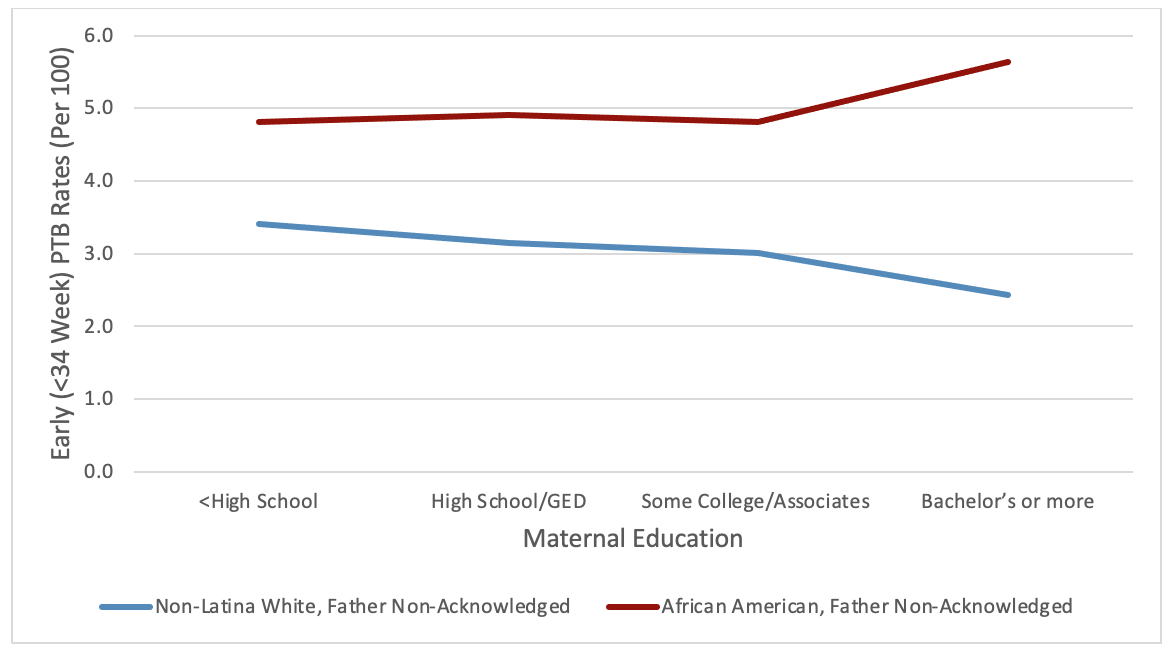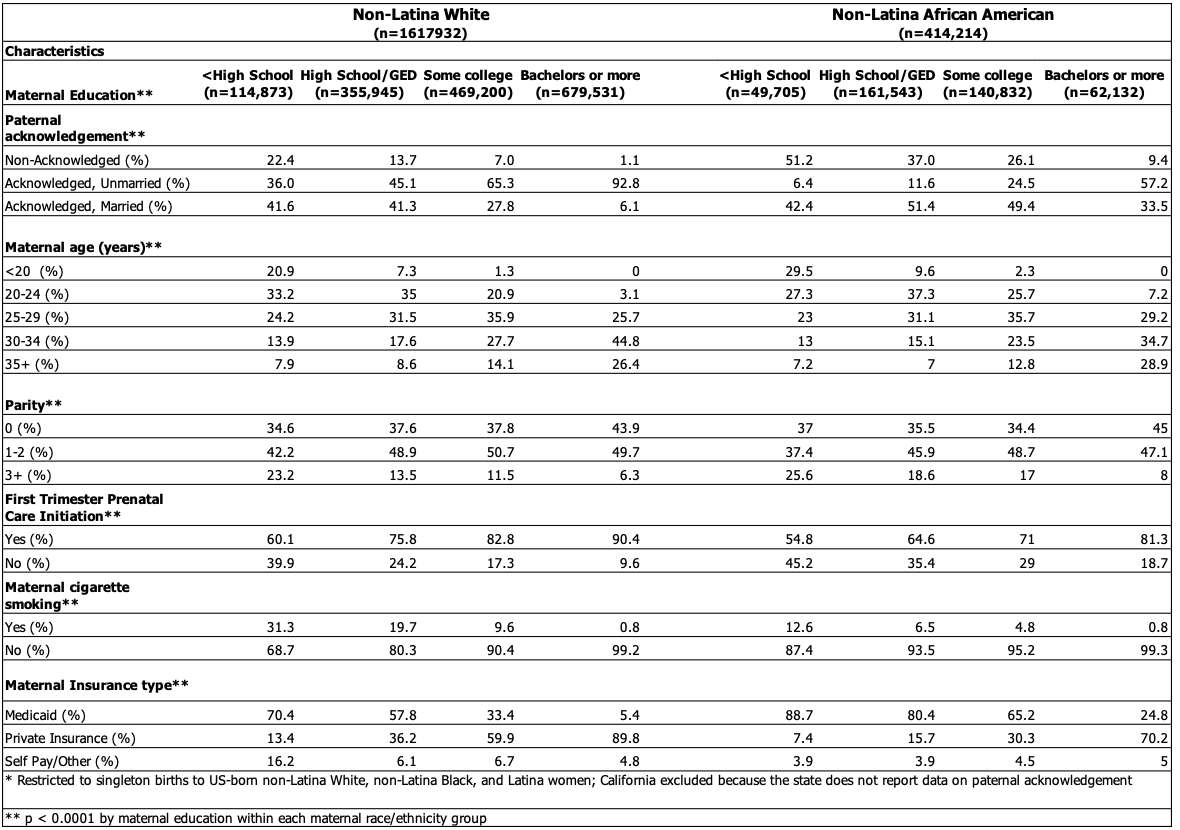Neonatal-Perinatal Health Care Delivery: Epidemiology/Health Services Research
Neonatal-Perinatal Health Care Delivery 1: Epi/HSR Equity
623 - The education-related patterns of early (< 34 week) preterm birth (PTB) rates among US-born non-Latina White and African-American women: the incongruent impact of paternal non-acknowledgement
Publication Number: 623.14

Catherine L. Austin, MD (she/her/hers)
Neonatal-Perinatal Medicine Fellow
Columbia University Vagelos College of Physicians and Surgeons
New York, New York, United States
Presenting Author(s)
Background: African-American (compared to non-Latina White) women have a two-greater early PTB rate. Moreover, the protective association of college education attainment and PTB rates is attenuated among African-American (compared to non-Latina White) women. Paternal non-acknowledgment on the infant’s birth certificate is a recently identified risk factor for PTB. The extent to which paternal acknowledgement underlies the disparate education-related patterns of early PTB rates among non-Latina White and African-American women is unknown.
Objective: To determine whether paternal acknowledgement modifies the relationship between education attainment and early PTB rates among US-born non-Latina White and African-American women.
Design/Methods: We performed stratified and multivariable log binomial regression analyses on the 2019 national vital records of singleton births to US-born non-Latina White (n=1,617,932) and African-American (n=414,214) women.
Results:
The percentage of births with non-acknowledged fathers ranged from only 1% for non-Latina White women with a bachelor’s degree or higher to 51% for African-American women with < High School (HS) education. Among births with acknowledged (unmarried or married) fathers, race group-specific early PTB rates decreased as maternal education attainment improved (Figure 1). Among births with acknowledged-married fathers, the adjusted (controlling for maternal demographic, medical, and behavioral characteristics [Table 1]) RR of early PTB for non-Latina White and African-American women with a bachelor’s or higher (compared to < HS) degree equaled 0.6 (0.6, 0.7) and 0.5 (0.4, 0.6), respectively. Among births with non-acknowledged fathers, only non-Latina White women’s early PTB rates decreased as education attainment rose (Figure 2); the adjusted RR of early PTB for non-Latina White and African-American women with a bachelor’s or higher degree (compared to < HS) equaled 0.6 (0.5, 0.5) and 0.9 (0.8, 1.0), respectively.
Conclusion(s):
A strong protective association of non-Latina White women’s rising education attainment and early PTB rates exists regardless of paternal acknowledgement. In contrast, African-American women’s early PTB rates decline with rising education attainment only among births with acknowledged fathers. These intriguing findings have public health relevance to the racial disparity in infant mortality rates.


